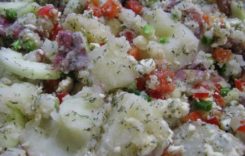
Coconut sugar could be your dietician-approved natural solution. Why it’s goodOrganic and healthier than table sugar, it is cooked from the sap of the flower buds of the coconut palm tree. It has a brown tint similar to demerara (brown sugar), and is richer in minerals like zinc, potassium and magnesium than other sweeteners like maple syrup and honey. While the table sugar you usually consume is made up of 100% sucrose, coconut sugar is only about 75% sucrose. Researchers found that coconut sugar has a low glycaemic index of 35 and hence, reacts slower than regular white sugar.
According to Dr. Jonny Bowden in his The 150 Healthiest Foods on Earth, coconut provides healthy fats, including lauric acid, which are antiviral, antimicrobial, immune-boosting, and even help fight some cancers. Your body uses the easier-to-metabolize medium-chain triglycerides (MCTs) in coconut to burn as fuel rather than store as fat.
Electrolyte-rich coconut water doesn’t offer those healthy fats, and many commercial brands contain added sugar. Athletes who need to rehydrate post-workout should be fine with no-sugar-added coconut water, but you’ll only get those healthy fats in coconut oil, coconut butter, coconut milk, and coconut meat.
Compared with table and brown sugars, coconut sugar has impressive amounts of nutrients like zinc and iron as well as antioxidants.
Coconut sugar also contains good amounts of inulin, a type of dietary fiber you don’t digest in your upper gastrointestinal tract. Instead, inulin acts as a prebiotic, feeding your intestinal bifidobacteria (a probiotic).
Among its benefits, clinical research finds prebiotics like inulin support gut health, colon cancer prevention, blood sugar balance, lipid (fat) metabolism, bone mineralization, fatty liver disease, obesity, and immunity.
One study in the Diabetes & Metabolism Journal found inulin could improve glycemic control and antioxidant status in women with Type 2 diabetes.
Nutrients and inulin aside, let’s not forget coconut sugar is a sweetener. Like table sugar, coconut sugar contains about equal amounts of fructose and glucose.
More specifically, a study in the ASEAN Food Journal found coconut sugar has about 71 percent sucrose, or table sugar, as well as 3 percent pure glucose and 3 percent pure fructose. In other words, about 78 percent — over three-fourths — of coconut sugar is actually sugar, compared with 100 percent of table sugar. (Nutrients, inulin, and antioxidants constitute coconut sugar’s other 22 percent.)
5 tips for baking with coconut sugar:
- Substitute white or brown sugar in a recipe with coconut sugar.
- Don’t use it in recipes containing lemon since the flavour gets tarty.
- Coconut sugar is more coarse in texture, so if a recipe requires creaming butter and sugar together, yours will have a speckled and porous look after baking.
- When using liquids like melted butter, milk or water, semi-liquids like oil or dahi, let the coconut sugar dissolve for five minutes in the liquid and stir occasionally. Add the mixture to the rest of the ingredients after five minutes are up. This tip applies to breads, muffins and brownies.
- If you are unsure about the taste and don’t want to go the whole hog with coconut sugar, use it gradually in your recipes. For instance, if a recipe requires 1 cup of sugar, use 1/2 cup white sugar and 1/2 cup coconut sugar until you get used to the taste.
Thus, coconut sugar is a healthy sweetener for your coffee or homemade salad dressing, opt for natural alternatives like stevia, monk fruit, and erythritol, which don’t raise your blood sugar, don’t stress out your liver, and even provide some health benefits.









